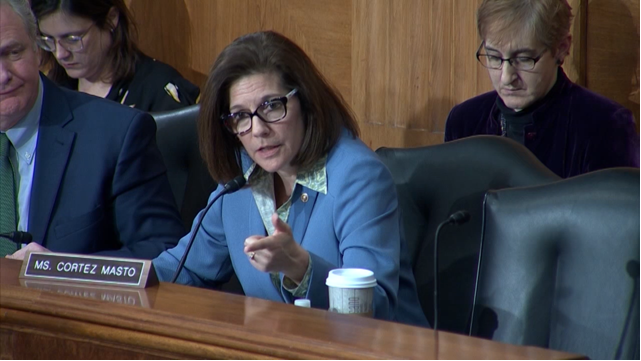Washington, D.C. – At a hearing of the Senate Banking Committee, U.S. Senator Catherine Cortez Masto (D-Nev.) grilled Consumer Financial Protection Bureau (CFPB) Director Kathy Kraninger about the agency’s decision to stop monitoring banks’ and payday lenders’ compliance with the Military Lending Act (MLA), a law that protects servicemembers and their families from predatory lending.
“By choosing not to include the MLA as part of the CFPB’s supervisory exams, particularly of payday lenders, you appear to be putting the burden on servicemembers and their families to complain about violations of the MLA before your agency can take action,” the senator told Kraninger.
When Senator Cortez Masto questioned Kraninger about the basis for the policy change, Kraninger replied that Congress had not designated the MLA as a consumer financial law and therefore, the Bureau was not responsible for supervising MLA compliance.
“No, but it was designated right in the Military Lending Act that the CFPB would be the enforcer. And so I’m curious as to why there are these semantics between enforcement and supervision,” responded the senator.
Senator Cortez Masto argued that placing the burden on servicemembers to report violations of the MLA, as the CFPB’s policy change requires, is akin to asking police officers to investigate crimes only after a complaint is filed. She demanded that Kraninger provide her with CFPB’s legal justification for the change.
Full video is of this exchange is available here.
BACKGROUND
The MLA was passed in 2006 with bipartisan support to help safeguard active-duty military members and their families from financial fraud, predatory loans, and credit gouging. The law caps the annual interest rate for an extension of consumer credit to a service member or his or her dependents at 36%.
